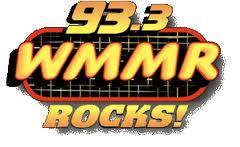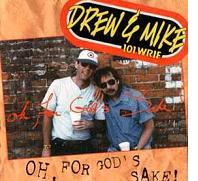As we have done the past couple years, our final posts to wrap-up 2011 are our version of a “Best of.” But this year, we’re not making these calls based on OUR opinion of what resonated with you – instead, we’ve turned to the metrics. The blogs that wrap-up the year generated the most traffic and comments.
The summer months saw a number of format changes in radio, and many involved music stations switching to “spoken word” formats. Radio Ink’s Ed Ryan (along with other trade journalists) began to opine about whether Rock was the chief victim, and if that didn’t make a statement about the health of the format. Today’s “Best of” post is from late August and was one of the most heavily viewed and commented on of 2011.
 Talk about bad days. I get stranded in Omaha after a great day with the Nebraska Broadcasters Association (more on this in a future post), the stock market goes down another gazillion points, Delta screws up my return trip to Detroit, and then I open my email Friday morning to read this lovely headline in Radio Ink:
Talk about bad days. I get stranded in Omaha after a great day with the Nebraska Broadcasters Association (more on this in a future post), the stock market goes down another gazillion points, Delta screws up my return trip to Detroit, and then I open my email Friday morning to read this lovely headline in Radio Ink:
The Dying Rock Format
(When did Radio Ink start screaming and hyping like my local TV news station?)
Apparently following the deaths of WYSP and WHTQ – both to spoken word rebroadcasts of already existing AM news and sports stations – the luminaries at Radio Ink have concluded that Rock – or as they called it “The Music You Grew Up With” – is fading away.
Geez – I thought you guys viewed yourselves as part of the solution rather than the problem. Headlines like these are guaranteed to upset a number of already uptight GMs and their higher-ups as much as their sinking stock portfolios. And they’ll motivate media buyers to call their Rock account executives and jam them even harder on rates. Not good, and worse, it’s much ado about nothing.
To be fair, August has been as tough a month for Rock-related formats as it has been for the Dow. As we know, high-profile stations like WRXP and Q101 both were Merlinized. To be fairer, neither of those stations had seen bona fide success in years, and in the case of RXP, ever. And Cleveland’s WKRK, after having a number of PPM months near or at the top of the 18-34 Adult ranker, bit the dust for the more opportune Sports-Talk format that CBS does so well.
 So, is Rock truly on the brink? Is the format – and I guess we’re talking Rock, Classic Rock, Alternative, Triple A, and all their derivatives – in trouble and moving toward the same fate that befell Smooth Jazz? For more than two decades, Rock has been the most highly fragmentable of all formats. If you would have told me back in the mid-‘80s when, along with Tom Bender, I came up with the Classic Rock format that there would be a number of different permutations, I wouldn’t have believed it. But Classic Hits in the early days, thanks to Gary Guthrie and stations like KLH in Milwaukee, and later Classic Rock That Rocks a few years later showed that this format could be sliced and diced.
So, is Rock truly on the brink? Is the format – and I guess we’re talking Rock, Classic Rock, Alternative, Triple A, and all their derivatives – in trouble and moving toward the same fate that befell Smooth Jazz? For more than two decades, Rock has been the most highly fragmentable of all formats. If you would have told me back in the mid-‘80s when, along with Tom Bender, I came up with the Classic Rock format that there would be a number of different permutations, I wouldn’t have believed it. But Classic Hits in the early days, thanks to Gary Guthrie and stations like KLH in Milwaukee, and later Classic Rock That Rocks a few years later showed that this format could be sliced and diced.
 So in many markets, we’ve ended up with four or even five Rock-formatted stations. In fact, that’s still the case today in Denver, San Diego, Seattle, and many others which are still “over-rocked.” You’re not going to find markets where there are three or four Country, All News, Talk, or Hip-Hop stations. But in Rock radio, it’s been this way for a long time. That puts pressure on all these stations, and inevitably there are going to be drop-outs.
So in many markets, we’ve ended up with four or even five Rock-formatted stations. In fact, that’s still the case today in Denver, San Diego, Seattle, and many others which are still “over-rocked.” You’re not going to find markets where there are three or four Country, All News, Talk, or Hip-Hop stations. But in Rock radio, it’s been this way for a long time. That puts pressure on all these stations, and inevitably there are going to be drop-outs.
So, when something new and exciting comes along – and in the past, it’s been everything from Jammin’ Oldies to Jack – these tertiary Rock stations (and weaker stations in other formats) are going to be the first to go. Frankly, that’s what YSP was about. It fought the good fight but was a “spoiler station,” designed more to ding Greater Media’s MMR and MGK than it was to be a winner on its own. Stern and Bonaduce are already engaged in one of those mindless WWE debates about whose impact was bigger, but when WIP’s ratings took a hit, there was no question that YSP would be the one to take the bullet. Is that an indictment of Rock or is it more about a broadcaster opportunistically using its assets wisely? This time around, the victim was a Rock station.
 But if Rock is dead, you’re going to have to explain that to Greater Media in Detroit and Philly where their two Rock stations are usually Top 5 25-54 adults – and often higher. Or to Simmons, whose Alternative X96 in Salt Lake City is a perennial #1 just about everywhere you look. Or to Entercom in markets like Sacramento, Kansas City, Portland, New Orleans, and of course, Seattle where their Rock-formatted stations are always among the market winners.
But if Rock is dead, you’re going to have to explain that to Greater Media in Detroit and Philly where their two Rock stations are usually Top 5 25-54 adults – and often higher. Or to Simmons, whose Alternative X96 in Salt Lake City is a perennial #1 just about everywhere you look. Or to Entercom in markets like Sacramento, Kansas City, Portland, New Orleans, and of course, Seattle where their Rock-formatted stations are always among the market winners.
There’s not enough room here to list all the markets where Rock formats rule or are among the leaders with 25-54 adults. And now that I’m thinking about it, how about all those AC stations in many large and medium markets struggling to crack the top five in those all important 25-54 adult rankers? Just sayin’.
So, Radio Ink, go pick on Walt Sabo, Cumulus, or the FCC for a while.
Rock radio is the least of the industry’s problems.
But don’t let ME be the lone storyteller here. If you program, manage, own, or are on the air at a winning Rock station in Boston, Boise, or Bakersfield, step up today and let Radio Ink know about how this headline and article fits into your view of the state of Rock.
P.S. And to also set the record straight as the trades report on spoken word debuts that were once Rock formats, consider these flips to talk and sports that have been conveniently forgotten:
- The Ticket (Detroit) – Hot Talk
- KCBS (San Francisco) – Oldies
- The Fan (Minneapolis) – Conservative Talk
- The Game (San Francisco) – Country
- The Fanatic (Philadelphia) – AC/Jazz
- WSB-FM (Atlanta) – Hip-Hop
- WTOP-FM (Washington, DC) – Classical
- KIRO-FM (Seattle) – Oldies
- KRLD-FM (Dallas) – Talk
- Simply Unpredictable - April 10, 2025
- Flush ‘Em Or Fix ‘Em?What Should Radio Do About Its Aging Brands? - April 9, 2025
- Radio: It’s Time To Stop Playing Small Ball - April 8, 2025




Leave a Reply